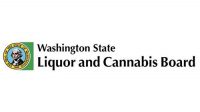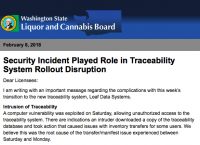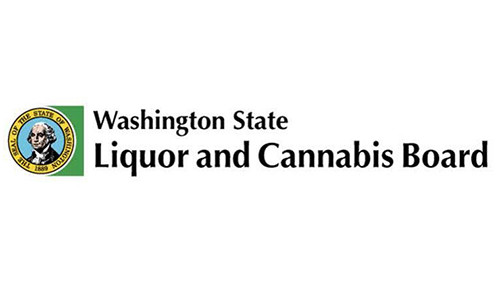On February 8th, Peter Antolin, the deputy director for the Washington State Liquor and Cannabis Board (WSLCB), sent an email to licensees explaining why the transition to their new traceability system was disrupted. Last Saturday, someone gained access to the sensitive information in Leaf Data Systems, the state’s traceability software that is powered by MJ Freeway.
“A computer vulnerability was exploited on Saturday, allowing unauthorized access to the traceability system,” Antolin told licensees in the email. “There are indications an intruder downloaded a copy of the traceability database and took action that caused issues with inventory transfers for some users. We believe this was the root cause of the transfer/manifest issue experienced between Saturday and Monday.”
The email goes on to say that no personally identifiable information was available to the ‘intruder,’ but some sensitive information was clearly accessed. That data includes route information of manifests filed between February 1st and 4th as well as transporter vehicle information including VIN, license plate number and vehicle type, according to the email.
That email leaves much to be desired. For one, they do not exactly have a solution, instead trying to alleviate licensees’ worries with a hollow inanity full of meaningless jargon: “The WSLCB and MJ Freeway continue to implement several strategies to prevent future vulnerabilities to future intrusions,” reads the email. “This includes full logging and monitoring and working with third-party entities. Since this remains an active investigation, details on security are not publicly available.” However, today the WSLCB is hosting a webinar where Peter Antolin, their IT division, the MJ Examiners unit and enforcement will be available to answer questions, according to the email.
 This is by no means the first security breach that Washington and MJ Freeway have suffered. In May of 2017, Washington originally selected Franwell’s METRC as the contract partner for their traceability software system. Less than a month later in June of 2017, after a mistake in the selection process, Washington selected MJ Freeway instead of Franwell for the traceability contract. Three days later, MJ Freeway’s source code was stolen and published online. Then in September, Nevada cancelled their contract with MJ Freeway after a security breach, their services crashed in Pennsylvania and Spain, and in October it became clear that the company could not meet the October 31 deadline for their new Washington contract.
This is by no means the first security breach that Washington and MJ Freeway have suffered. In May of 2017, Washington originally selected Franwell’s METRC as the contract partner for their traceability software system. Less than a month later in June of 2017, after a mistake in the selection process, Washington selected MJ Freeway instead of Franwell for the traceability contract. Three days later, MJ Freeway’s source code was stolen and published online. Then in September, Nevada cancelled their contract with MJ Freeway after a security breach, their services crashed in Pennsylvania and Spain, and in October it became clear that the company could not meet the October 31 deadline for their new Washington contract.
In November of 2017, BioTrackTHC, the company that held the previous contract for Washington’s traceability software, helped the state through the transition period with a temporary Band-Aid solution to hold the state over until January of 2018. A month after they expected to implement the new MJ Freeway system, the latest security breach occurred this week and disrupting the rollout yet again.
At the end of the email Antolin sent to licensees yesterday, he says there will continue to be attempts to breach the system’s security. “The bottom line is that this incident is unfortunate,” says Antolin. “There will continue to be malicious cyberattacks on the system. This is true of any public or private system and is especially true of the traceability system.” This begs a few questions: why aren’t we hearing about this kind of security breach in other states’ traceability systems? What are other companies doing that prevents this from happening? Why does this keep happening to MJ Freeway?
 In a press release sent out earlier this month, the Washington State Liquor and Cannabis Board (WSLCB) announced they have shut down Praxis Laboratory for falsifying test results. The WSLCB, the state regulatory agency overseeing Washington’s cannabis industry, said that Praxis inflated data for potency test results on more than 1200 samples, giving samples higher THC levels than the state actually found.
In a press release sent out earlier this month, the Washington State Liquor and Cannabis Board (WSLCB) announced they have shut down Praxis Laboratory for falsifying test results. The WSLCB, the state regulatory agency overseeing Washington’s cannabis industry, said that Praxis inflated data for potency test results on more than 1200 samples, giving samples higher THC levels than the state actually found. Praxis Laboratory, located in Centralia, Washington, is also accused of interfering with the investigation. “During the investigation the lab owner attempted to destroy evidence of falsified data in an effort to obstruct LCB’s ability to conduct a complete investigation,” reads the press release. “Labeling cannabis with falsely high THC potency levels is a form of consumer deception and is prohibited under Washington law.”
Praxis Laboratory, located in Centralia, Washington, is also accused of interfering with the investigation. “During the investigation the lab owner attempted to destroy evidence of falsified data in an effort to obstruct LCB’s ability to conduct a complete investigation,” reads the press release. “Labeling cannabis with falsely high THC potency levels is a form of consumer deception and is prohibited under Washington law.”






 According to a release emailed last week, the violation was uncovered during a routine traffic stop. “On September 20, 2018 an employee of North Coast Concentrates was pulled over by Lower Elwha Police, during the course of the traffic stop officers found 112 grams of traceable marijuana concentrates, three large jars and a large tote bin of untraced dried marijuana flower,” reads the release. “The products were not manifested in the state traceability system. Subsequent investigation by WSLCB officers revealed that the untraced product had been removed from the licensees grow operation and that the traced concentrates were returned from a marijuana retailer in Tacoma several weeks earlier.”
According to a release emailed last week, the violation was uncovered during a routine traffic stop. “On September 20, 2018 an employee of North Coast Concentrates was pulled over by Lower Elwha Police, during the course of the traffic stop officers found 112 grams of traceable marijuana concentrates, three large jars and a large tote bin of untraced dried marijuana flower,” reads the release. “The products were not manifested in the state traceability system. Subsequent investigation by WSLCB officers revealed that the untraced product had been removed from the licensees grow operation and that the traced concentrates were returned from a marijuana retailer in Tacoma several weeks earlier.”






 While the release states they have not yet officially awarded them the contract, it says Franwell is the apparent successful vendor (ASV) to replace their current system. “An ASV is the procurement term used for the highest scoring, responsive vendor,” says the press release.
While the release states they have not yet officially awarded them the contract, it says Franwell is the apparent successful vendor (ASV) to replace their current system. “An ASV is the procurement term used for the highest scoring, responsive vendor,” says the press release.